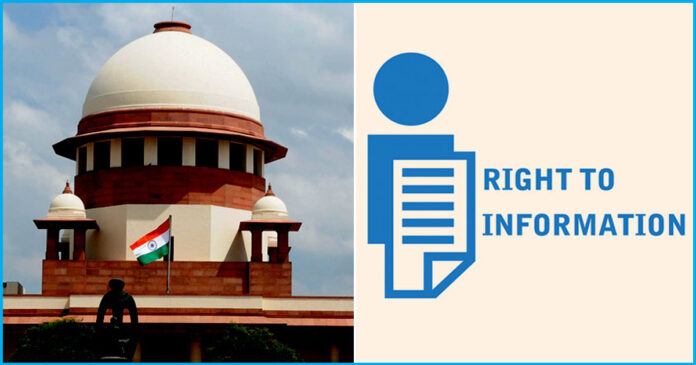Introduction
The Right to Information (RTI) Act enacted in India in 2005 is a landmark legislation aimed at promoting transparency and accountability in the functioning of public authorities. It grants every citizen the right to seek information from government bodies, ensuring access to records and documents that are otherwise not readily available. One of the critical aspects of the RTI Act is its appeals mechanism, which allows applicants to challenge denials or inadequate responses from public authorities. This article delves into the debate surrounding whether documents available in first appeal records should be necessarily filed at the time of second appeal, an issue currently under consideration by the Supreme Court of India.
Understanding the RTI Act
The RTI Act mandates that public authorities proactively disclose information to the public and respond to requests for information within specified timelines. If an applicant is dissatisfied with the response received from a public authority, they can file a first appeal within the department. This appeal is typically reviewed by a designated appellate authority within the same public authority.
First Appeal Process
Upon filing a first appeal, the appellate authority reviews the application and the initial response to determine if the information requested should be disclosed or if the initial decision was flawed. The appellant may present additional arguments or evidence to support their case during this stage. The decision of the first appellate authority is crucial as it sets the stage for further action under the RTI Act.
Second Appeal to Information Commission
If the appellant remains unsatisfied with the decision of the first appellate authority, they have the option to file a second appeal to the Information Commission. The Information Commission is an independent statutory body established under the RTI Act, tasked with adjudicating disputes related to the access of information.
Legal Requirements and Debate
The debate revolves around whether documents available in the first appeal records should be mandatory for the second appeal process. Currently, there is no explicit requirement in the RTI Act that mandates the filing of first appeal records at the time of the second appeal. However, practical considerations often lead appellants to submit relevant documents from the first appeal to substantiate their case before the Information Commission.
Supreme Court’s Role
The issue has garnered attention due to conflicting interpretations and practices across different Information Commissions in India. The Supreme Court of India has been approached to provide clarity on this matter, aiming to streamline the procedural requirements for second appeals under the RTI Act.
Legal Analysis and Precedents
Several legal principles and precedents underpin the discussion:
- Statutory Interpretation: Courts often interpret statutory provisions to determine the legislative intent behind the RTI Act. While the Act provides for appeals to the Information Commission, it does not explicitly outline the specific documents required for a second appeal.
- Appellate Procedure: Generally, appellate procedures in administrative law require appellants to submit relevant documents and evidence to support their claims. This principle applies to RTI appeals as well, where documentary evidence can strengthen the appellant’s case.
- Case Law: Previous judgments of various High Courts and the Supreme Court have addressed procedural aspects of the RTI Act. These decisions guide the application of the law in cases involving access to information and appeals.
Public Interest and Accountability
The RTI Act serves a larger public interest by ensuring transparency and accountability in governance. The effectiveness of the appeals mechanism is crucial in upholding these principles. A clear and coherent interpretation of procedural requirements for second appeals can enhance access to information while promoting efficient administration under the RTI Act.
Challenges and Concerns
The lack of uniformity in practices among different Information Commissions has been a challenge. Appellants often face varying procedural requirements when filing second appeals, leading to confusion and delays in the resolution of disputes.
Potential Implications
A definitive ruling by the Supreme Court on whether documents from first appeal records are mandatory for second appeals could have significant implications:
- Clarity and Consistency: A clear directive would promote consistency in the handling of second appeals across Information Commissions, reducing ambiguity for appellants and public authorities alike.
- Efficiency: Streamlining procedural requirements can enhance the efficiency of the appeals process, ensuring timely resolution of disputes under the RTI Act.
- Access to Justice: Facilitating access to relevant information and evidence can strengthen the position of appellants seeking transparency from public authorities.
Conclusion
In conclusion, the debate over whether documents available in first appeal records should be mandatory for second appeals under the RTI Act underscores the need for clarity and uniformity in administrative procedures. The Supreme Court’s consideration of this issue is pivotal in shaping the future application of the RTI Act, balancing the rights of citizens to access information with the practicalities of administrative justice. A well-informed decision would not only strengthen transparency but also reinforce accountability in governance, aligning with the overarching objectives of the RTI Act in India.


